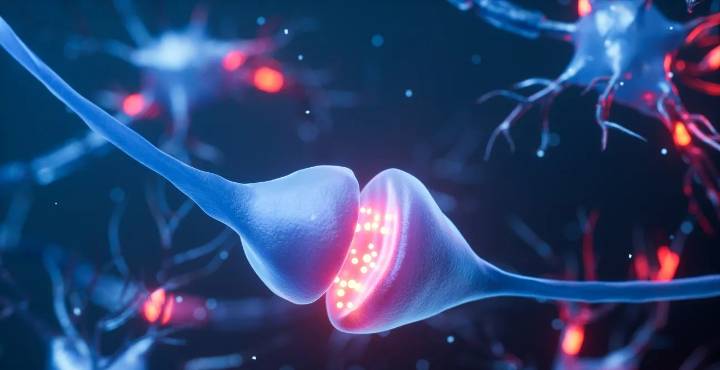News Feed

United States Sees Disproportionate Increase in Body Mass Index Rates of More Than 60
In the past 20 years, the average rate of obesity among adults in the United States has risen by approximately 30 percent, but the rate of those with the most severe forms of obesity, or those with a body mass index, or BMI, of more than 60 kg/m2, increased by 210 percent. In a recently published research letter in the prestigious medical journal The Lancet: Diabetes & Endocrinology, researchers from Pennington Biomedical analyzed national health data from 2001 through 2023, and discovered the alarming increase in the numbers of patients with the most severe forms of obesity.
Learn More
Pennington Biomedical Research Center Investigates Tirzepatide's Role in Weight Loss and Metabolic Health
Researchers at the Pennington Biomedical Research Center conducted a first-of-its-kind study to provide insights into the mechanisms of action of tirzepatide – a drug known as Zepbound™ – on weight loss with respect to energy expenditure, fat oxidation and calorie intake. The study, “Tirzepatide did not impact metabolic adaptation in people with obesity, but increased fat oxidation,” published in Cell Metabolism, showed that tirzepatide decreased participants’ calorie intake at lunch/dinner by reducing appetite while increasing fat oxidation, thus helping participants to lose weight. However, the drug did not decrease the slowing down of their metabolic rate usually observed with weight loss.
Learn More
A Scientific Center Becomes an Economic Engine
Entrepreneurial scientists at LSU’s Pennington Biomedical Research Center win national grants and corporate contracts that fund hundreds of biomed jobs at the Center in Baton Rouge each year. Over the past 35 years, Pennington Biomedical has attracted researchers from around the world to its Baton Rouge campus with the purpose of helping people live longer, healthier lives. These internationally renowned scientists collaborate with their colleagues in 240 academic institutions in 24 countries. Their work has generated close to 400,000 citations in scientific literature with five scientists ranking among the most cited researchers in the world
Learn More
Pennington Biomedical's 2025 Bray Obesity Symposium to Offer On-Demand Continuing Education for Physicians
The 2025 Bray Obesity Symposium welcomes all health physicians and researchers interested in the latest in metabolic health to register for the on-demand online offerings. The online-only content is available to access upon registration, and the symposium has been designated by the American Board of Obesity Medicine, or ABOM, as a Group One Primary Medicine Continuing Medical Education partner.
Learn More
The Metabolic Demands of Nursing Drive Hormonal Adaptations in Mothers
Nursing poses major metabolic demands on mothers, to which they respond by eating more and saving energy to sustain milk production. There are significant hormonal changes during lactation, but how they lead to metabolic adaptations in nursing mothers remained unclear. In this study, which appeared in Nature Metabolism, leading researchers at Baylor College of Medicine and Pennington Biomedical Research Center uncovered a mechanism that connects prolactin, estrogen, the brain and metabolic adaptations during lactation.
Learn More
Dr. Catherine Champagne Named an Excellence in Nutrition Fellow
The American Society for Nutrition, or ASN, announced the first awardees of the Excellence in Nutrition Fellows of the American Society for Nutrition, or FASN, recognizing 55 distinguished members for their ongoing contributions to the field and sustained engagement in the nutrition community. Included among the honorees is Dr. Catherine Champagne, Professor of Dietary Assessment and Nutrition Counseling and Nutritional Epidemiology.
Learn More
Pennington Biomedical Researchers Uncover Role of Hormone in Influencing Food Preferences
We know eating a balanced diet is essential for good health, but what actually drives our food preferences? How the brain listens to what’s going on in the body and how this connection affects dietary preferences is the focus of much of the work of Christopher Morrison and fellow researchers at Pennington Biomedical Research Center.
Learn More
Dr. Leanne Redman Honored with the E. V. McCollum Award from the American Society for Nutrition
The American Society for Nutrition, or ASN, and the ASN Foundation announced the distinguished recipients of the 2025 National Scientific Achievement Awards today. Recognizing outstanding contributions and pioneering advancements in the field of nutrition, these awards serve as a testament to excellence and innovation.
Learn More
The "Science of Eating" Series: Metabolic Myths
As part of Pennington Biomedical’s Science of Eating series, Associate Professor of Clinical Science, Dr. Ursula White, recently led an informative discussion to debunk some common myths and explain the science behind the misperceptions.
Learn More
Fourth Annual Senior Black American Health Fair Returns to Pennington Biomedical Saturday, April 12
Pennington Biomedical Research Center is gearing up to host the 4th annual Senior Black American Health Fair. Open to all residents in the Greater Baton Rouge region and beyond, the health fair will take place on Saturday, April 12, from 8:30 a.m. to 1 p.m. at the C.B. Pennington Jr. Conference Center Building, located at 6400 Perkins Road in Baton Rouge. The schedule for the day is filled with engaging activities, and participants are encouraged to dress in comfortable activewear.
Learn More
Pennington Biomedical Q&A: Dr. Hannah Cabré
Hannah Cabré, PhD, RDN, has earned many laurels in her career, but is not one to rest on them and take them for granted. Always in pursuit of clarity and new discoveries in reproductive health, she is a Postdoctoral Fellow in the Reproductive Endocrinology and Women’s Health Labatory at Pennington Biomedical Research Center. Under the mentorship of Dr. Leanne Redman and Dr. Eric Ravussin, she is a registered dietician and exercise physiologist, and she was recently named as the Center’s Postdoctoral Fellow of the Year, in part for her dedication to women’s health.
Learn More
Pennington Biomedical Research Center’s April Small Shifts Focus: Office and Home Workouts
Pennington Biomedical Research Center is excited to announce that April's focus for the Small Shifts campaign is integrating brief office and home workouts into daily routines. The Small Shifts initiative is part of the Center's ongoing commitment to promoting manageable lifestyle changes that lead to long-term health and well-being.
Learn More
Pennington Biomedical Researchers Identify Neurons in Brain that Regulate Energy Levels and Body Temperature
Scientists at Pennington Biomedical Research Center have gained greater clarity in the brain regions and neurons that control metabolism, body temperature and energy use. Featured in the February edition of the journal Metabolism, Dr. Heike Münzberg-Gruening and a team of researchers discovered which chemicals influence the signals that control how much energy the body uses. In “Leptin Receptor Neurons in the dorsomedial hypothalamus require distinct neuronal subsets for thermogenesis and weight loss,” researchers laid out the pathways, chemicals, neurons and brain regions that are activated.
Learn More
Pennington Biomedical’s Dr. Yun Shen Awarded $250,000 to Explore AI for Hypertension Management in Type 2 Diabetes Care
Pennington Biomedical Research Center’s Dr. Yun Shen will lead a team to explore the use of AI for precision hypertension management in Type-2 diabetes care. The research is funded through an award of $250,000 from the Collaboration in Action Program, established by Championship Health Partners LSU and Our Lady of the Lake Health.
Learn More
Pennington Biomedical Among AWI Awards to Advance the Welfare of Animals Used in Research
The Animal Welfare Institute, or AWI, is pleased to announce the 2024 winners of the Refinement Research Award, which funds research projects that develop or test novel refinement methods, and the Implementing Refinement Grant, which funds the purchase of equipment or training meant to improve the welfare of animals used in research.
Learn More
Pennington Biomedical Researchers Uncover Role of Hormone in Influencing Brain Reward Pathway and Food Preferences
When faced with multiple food options and ultimately choosing one, the factors of that decision-making process may be more physiological than previously assumed. A group of scientists led by Pennington Biomedical Research Center’s Dr. Christopher Morrison recently discovered that the hormone fibroblast growth factor 21, or FGF21, plays an influential role in brain reward mechanisms like those involved in dietary choices.
Learn More
Can Exercise Help Colon Cancer Survivors Live as Long as Matched Individuals in the General Population?
Physical activity may help colon cancer survivors achieve long-term survival rates similar to those of people in the general population, according to a recent study published by Wiley online in CANCER, a peer-reviewed journal of the American Cancer Society.
Learn More
Pennington Biomedical’s Wellness Day for Women Celebrates 25 Years
The Irene W. Pennington Wellness Day for Women celebrates its 25th anniversary in 2025 as it returns to Pennington Biomedical on Saturday, March 8, from 7 a.m. to 1 p.m. The event features a wide array of health screenings, services and other activities to participants from across the Capital region. Registration is open now and can be accessed on the Pennington Biomedical website.
Learn More
New Toolkit Empowers Healthcare Providers with Evidence-Based Strategies for Childhood Obesity Prevention and Treatment
Greaux Healthy—a public service initiative powered by Pennington Biomedical Research Center, in partnership with the State of Louisiana—is proud to announce the release of the Childhood Obesity Prevention, Evaluation and Treatment Toolkit, a comprehensive resource designed to equip healthcare providers with practical, evidence-based guidance for preventing, evaluating, and treating childhood obesity and its related comorbidities.
Learn More
It All Starts in the Lab
Each day when Dr. Jason Collier arrives at his office, he sees a poster of a child with hundreds of needles across their arms and legs. The image represents how many insulin shots that child would need over a several-month period to control their blood glucose. “That’s a very big motivating factor to solve the problems that are in front of us,” he says.
Learn More


